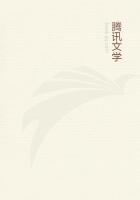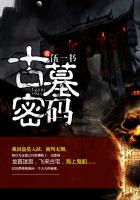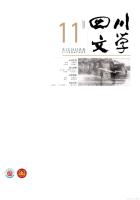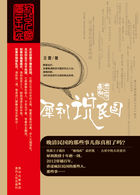17. Words and species. I have mentioned this here, because I think we cannot be too cautious that words and species, in the ordinary notions which we have been used to of them, impose not on us. For I am apt to think therein lies one great obstacle to our clear and distinct knowledge, especially in reference to substances: and from thence has risen a great part of the difficulties about truth and certainty. Would we accustom ourselves to separate our contemplations and reasonings from words, we might in a great measure remedy this inconvenience within our own thoughts: but yet it would still disturb us in our discourse with others, as long as we retained the opinion, that species and their essences were anything else but our abstract ideas (such as they are) with names annexed to them, to be the signs of them.
18. Recapitulation. Wherever we perceive the agreement or disagreement of any of our ideas, there is certain knowledge: and wherever we are sure those ideas agree with the reality of things, there is certain real knowledge. Of which agreement of our ideas with the reality of things, having here given the marks, I think, Ihave shown wherein it is that certainty, real certainty, consists.
Which, whatever it was to others, was, I confess, to me heretofore, one of those desiderata which I found great want of.
Chapter V
Of Truth in General 1. What truth is. What is truth? was an inquiry many ages since; and it being that which all mankind either do, or pretend to search after, it cannot but be worth our while carefully to examine wherein it consists, and so acquaint ourselves with the nature of it, as to observe how the mind distinguishes it from falsehood.
2. A right joining or separating of signs, i.e. either ideas or words. Truth, then, seems to me, in the proper import of the word, to signify nothing but the joining or separating of Signs, as the Things signified by them do agree or disagree one with another. The joining or separating of signs here meant, is what by another name we call proposition. So that truth properly belongs only to propositions: whereof there are two sorts, viz. mental and verbal;as there are two sorts of signs commonly made use of, viz. ideas and words.
3. Which make mental or verbal propositions. To form a clear notion of truth, it is very necessary to consider truth of thought, and truth of words, distinctly one from another: but yet it is very difficult to treat of them asunder. Because it is unavoidable, in treating of mental propositions, to make use of words: and then the instances given of mental propositions cease immediately to be barely mental, and become verbal. For a mental proposition being nothing but a bare consideration of the ideas, as they are in our minds, stripped of names, they lose the nature of purely mental propositions as soon as they are put into words.
4. Mental propositions are very hard to he treated of. And that which makes it yet harder to treat of mental and verbal propositions separately is, that most men, if not all, in their thinking and reasonings within themselves, make use of words instead of ideas; at least when the subject of their meditation contains in it complex ideas. Which is a great evidence of the imperfection and uncertainty of our ideas of that kind, and may, if attentively made use of, serve for a mark to show us what are those things we have clear and perfect established ideas of, and what not. For if we will curiously observe the way our mind takes in thinking and reasoning, we shall find, I suppose, that when we make any propositions within our own thoughts about white or black, sweet or bitter, a triangle or a circle, we can and often do frame in our minds the ideas themselves, without reflecting on the names. But when we would consider, or make propositions about the more complex ideas, as of a man, vitriol, fortitude, glory, we usually put the name for the idea: because the ideas these names stand for, being for the most part imperfect, confused, and undetermined, we reflect on the names themselves, because they are more clear, certain, and distinct, and readier occur to our thoughts than the pure ideas: and so we make use of these words instead of the ideas themselves, even when we would meditate and reason within ourselves, and make tacit mental propositions. In substances, as has been already noticed, this is occasioned by the imperfections of our ideas: we making the name stand for the real essence, of which we have no idea at all. In modes, it is occasioned by the great number of simple ideas that go to the making them up. For many of them being compounded, the name occurs much easier than the complex idea itself, which requires time and attention to be recollected, and exactly represented to the mind, even in those men who have formerly been at the pains to do it; and is utterly impossible to be done by those who, though they have ready in their memory the greatest part of the common words of that language, yet perhaps never troubled themselves in all their lives to consider what precise ideas the most of them stood for. Some confused or obscure notions have served their turns; and many who talk very much of religion and conscience, of church and faith, of power and right, of obstructions and humours, melancholy and choler, would perhaps have little left in their thoughts and meditations if one should desire them to think only of the things themselves and lay by those words with which they so often confound others, and not seldom themselves also.
5. Mental and verbal propositions contrasted. But to return to the consideration of truth: we must, I say, observe two sorts of propositions that we are capable of making:-First, mental, wherein the ideas in our understandings are without the use of words put together, or separated, by the mind perceiving or judging of their agreement or disagreement.
Secondly, Verbal propositions, which are words, the signs of our ideas, put together or separated in affirmative or negative sentences.

